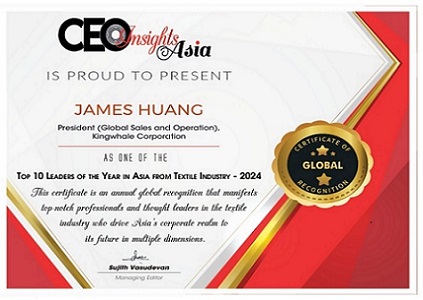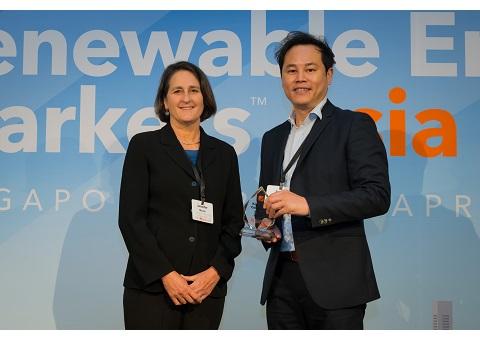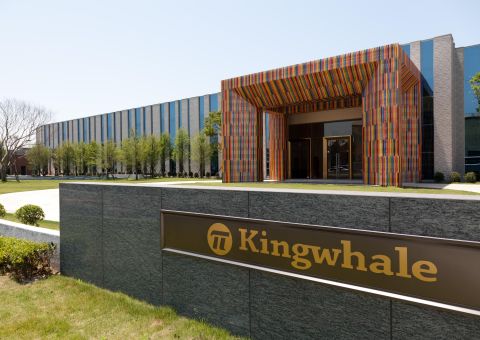News
Latest news
22.Apr.22
Kingwhale Committed to Sustainable Future
Kingwhale Committed to Sustainable Future
The Taipei-based company has joined the RE-100 initiative with a commitment to sourcing 100% of its electricity from renewable sources
Taiwan's textile industry aims to become more sustainable by reducing its footprint on the environment. To this end, manufacturers are working on producing fabric that uses less water, chemicals, and energy.
Kingwhale (菁華工業) has set clear goals for cutting carbon emissions to protect the environment and promote sustainable development. It is working on using recycled materials and reducing the amount of textile waste produced.
By setting clear goals for becoming carbon neutral by 2050, Kingwhale has positively impacted the environment and contributed to a more sustainable future.
“That gives us a guideline and goal, starting from how we use our energy, source our energy,” James Huang, general manager of Kingwhale, explained how his company prefers European machines because of stricter environmental regulations in European countries.
The textile industry is notoriously complex, and sustainable fabric production often falls by the wayside as companies prioritize profit over environmental responsibility. However, Kingwhale is working to build a circular economy within the textile industry.
The circular economy relies on waste prevention and reduction, and it aims to keep resources in use for as long as possible. This means using durable fabrics that can be easily recycled or reused in the textile industry.
It also means using natural dyes and finishes that won't harm the environment. Kingwhale is working to make the textile industry more sustainable by embracing these principles. And from a business standpoint, the company's commitment to sustainability is sure to set it apart from its competitors.
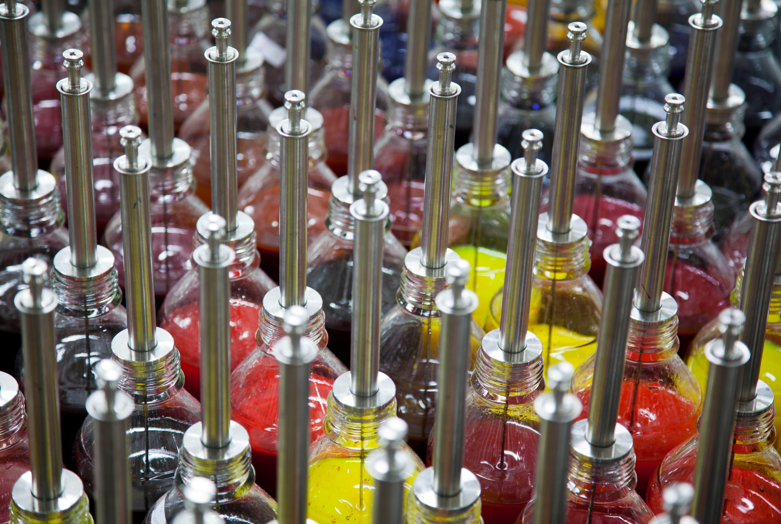
Committing to 100 Percent Renewable Electricity in its Production Process
Taiwan's textile industry has the potential to make a positive impact on the environment and contribute to a more sustainable future. A clear commitment to sustainability is key in sales development, as major brands are also committed to reducing their carbon footprints.
Textile manufacturers can take advantage of this growing trend by investing in sustainable practices. This could include using environmentally friendly dyes and fabrics, investing in energy-efficient machinery, and implementing systems to reduce water and textile waste, like Kingwhale.
The company has taken a leading role in this area by joining the RE-100 initiative. This initiative brings together some of the world's largest companies with a commitment to sourcing 100% of their electricity from renewable sources. By taking this step, Kingwhale shows the textile industry that it can operate more sustainably.
“We want to show the industry that we're committed to sustainability; we're looking at the energy management system in the past. All we’re trying to do to save resources within our operations,” Huang continued.
In addition to joining the RE-100 initiative, Kingwhale has also committed to using more sustainable fabrics. The company is working with suppliers to develop new textiles made from recycled materials.
Kingwhale is also investing in new dyeing technologies that use less water and energy. These steps will help reduce the company's carbon footprint and create a more sustainable future for all.
In the textile industry, sustainability has become an important topic. With the growth of the fashion industry and the increasing demand for new textile products, there is a need for more efficient and environmentally friendly textile production methods.
One such method is Kingwhale's L.I.T. “Low-Impact Technology.” It uses 15% fewer dyestuffs, 22% less electricity for heating and cooling, 50% less thermal energy to create steam, and 60% less water than conventional dyeing.
This creates fewer waste products that must be recycled or reclaimed. The L.I.T. technology allows for these significant reductions in resource usage, but it also does not sacrifice color quality or hand. It adds enhanced softness, performance, and after-care quality to the fabric.
As the textile industry continues to grow, technologies like L.I.T. will become increasingly important in ensuring that textile production is sustainable and does not put undue strain on the environment.
"We modified the molecular structure of the polyester fiber to allow it to absorb the dyestuff faster and more efficiently,” he went on. “We can shorten the dyeing process while reducing the water used.”
This is good for the environment and the fabric, reducing exposure to chemicals. In addition, this new technology is also sustainable, as it recycles the water used in the dyeing process.
Creating Performance Fabrics with Recycled Materials
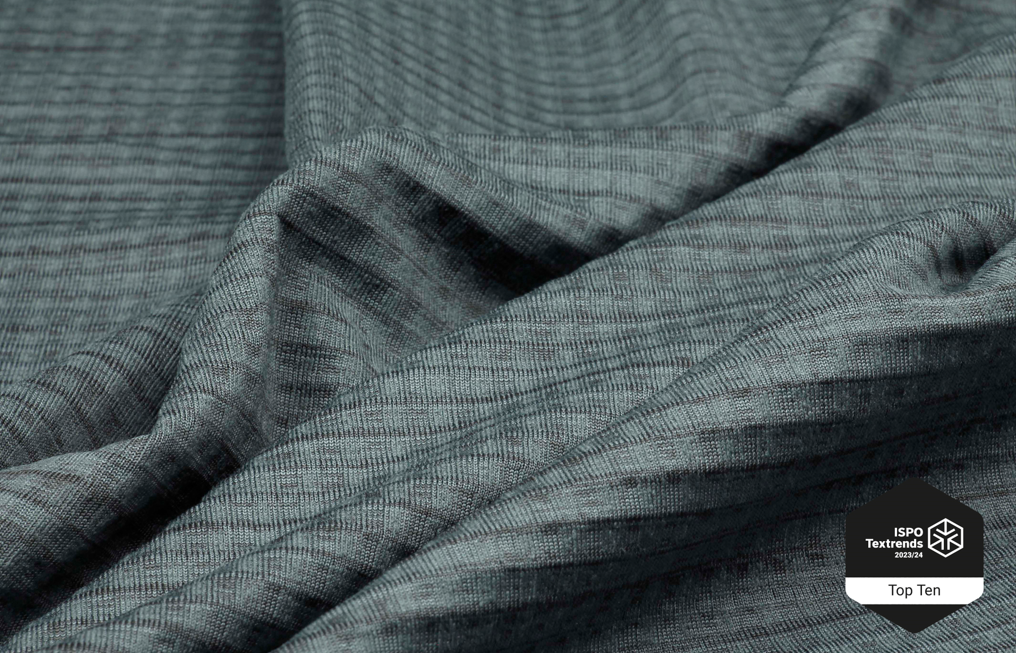
This is no easy task, but it is essential if the textile industry in Taiwan remains prosperous in the years to come. A large portion of that pollution comes from the production of synthetic fabrics. Polyester, in particular, is made from petroleum-based products and emits a variety of harmful chemicals during production.
However, recycled polyester offers a more sustainable option. Kingwhale uses yarn made from recycled polyester bottles to create a new line of sustainable fabrics.
The company stresses the importance of using cleaner bottles, as recycling facilities cannot remove all impurities from contaminated bottles. As a result, Kingwhale's fabrics are more sustainable and cleaner and safer for both workers and the environment.
The Future of Taiwan Textile Industry Lies in the Circular Economy
The textile industry has a significant environmental impact, from growing crops to the disposal of textile waste. In recent years, there has been an increased focus on sustainability in the textile industry, and Taiwan’s textile manufacturers have been looking for ways to reduce their environmental footprint.
Kingwhale is looking into more sustainable processes and a more sustainable way of making products. To this end, the company believes that it needs to change its business model toward a circular economy.
This should be the future of the Taiwan Textile industry. A circular economy is an economic system in which waste and pollution are eliminated or reduced. Products made from recycled materials are designed to be reused or recycled at the end of their life.
By taking these steps, Taiwan's textile manufacturers, like Kingwhale, can make their operations more sustainable without compromising quality.

The Taipei-based company has joined the RE-100 initiative with a commitment to sourcing 100% of its electricity from renewable sources
Taiwan's textile industry aims to become more sustainable by reducing its footprint on the environment. To this end, manufacturers are working on producing fabric that uses less water, chemicals, and energy.
Kingwhale (菁華工業) has set clear goals for cutting carbon emissions to protect the environment and promote sustainable development. It is working on using recycled materials and reducing the amount of textile waste produced.
By setting clear goals for becoming carbon neutral by 2050, Kingwhale has positively impacted the environment and contributed to a more sustainable future.
“That gives us a guideline and goal, starting from how we use our energy, source our energy,” James Huang, general manager of Kingwhale, explained how his company prefers European machines because of stricter environmental regulations in European countries.
The textile industry is notoriously complex, and sustainable fabric production often falls by the wayside as companies prioritize profit over environmental responsibility. However, Kingwhale is working to build a circular economy within the textile industry.
The circular economy relies on waste prevention and reduction, and it aims to keep resources in use for as long as possible. This means using durable fabrics that can be easily recycled or reused in the textile industry.
It also means using natural dyes and finishes that won't harm the environment. Kingwhale is working to make the textile industry more sustainable by embracing these principles. And from a business standpoint, the company's commitment to sustainability is sure to set it apart from its competitors.

Textile dye stuff
Committing to 100 Percent Renewable Electricity in its Production Process
Taiwan's textile industry has the potential to make a positive impact on the environment and contribute to a more sustainable future. A clear commitment to sustainability is key in sales development, as major brands are also committed to reducing their carbon footprints.
Textile manufacturers can take advantage of this growing trend by investing in sustainable practices. This could include using environmentally friendly dyes and fabrics, investing in energy-efficient machinery, and implementing systems to reduce water and textile waste, like Kingwhale.
The company has taken a leading role in this area by joining the RE-100 initiative. This initiative brings together some of the world's largest companies with a commitment to sourcing 100% of their electricity from renewable sources. By taking this step, Kingwhale shows the textile industry that it can operate more sustainably.
“We want to show the industry that we're committed to sustainability; we're looking at the energy management system in the past. All we’re trying to do to save resources within our operations,” Huang continued.
In addition to joining the RE-100 initiative, Kingwhale has also committed to using more sustainable fabrics. The company is working with suppliers to develop new textiles made from recycled materials.
Kingwhale is also investing in new dyeing technologies that use less water and energy. These steps will help reduce the company's carbon footprint and create a more sustainable future for all.
In the textile industry, sustainability has become an important topic. With the growth of the fashion industry and the increasing demand for new textile products, there is a need for more efficient and environmentally friendly textile production methods.
One such method is Kingwhale's L.I.T. “Low-Impact Technology.” It uses 15% fewer dyestuffs, 22% less electricity for heating and cooling, 50% less thermal energy to create steam, and 60% less water than conventional dyeing.
This creates fewer waste products that must be recycled or reclaimed. The L.I.T. technology allows for these significant reductions in resource usage, but it also does not sacrifice color quality or hand. It adds enhanced softness, performance, and after-care quality to the fabric.
As the textile industry continues to grow, technologies like L.I.T. will become increasingly important in ensuring that textile production is sustainable and does not put undue strain on the environment.
"We modified the molecular structure of the polyester fiber to allow it to absorb the dyestuff faster and more efficiently,” he went on. “We can shorten the dyeing process while reducing the water used.”
This is good for the environment and the fabric, reducing exposure to chemicals. In addition, this new technology is also sustainable, as it recycles the water used in the dyeing process.
Creating Performance Fabrics with Recycled Materials

Kingwhale Fabric selected Top Ten in ISPO Textrends 2023/24
Yet, manufacturers also need to enhance their manufacturing process without impacting the quality of their products. In other words, they need to find a way to produce textile products that are both environmentally friendly and high-quality.This is no easy task, but it is essential if the textile industry in Taiwan remains prosperous in the years to come. A large portion of that pollution comes from the production of synthetic fabrics. Polyester, in particular, is made from petroleum-based products and emits a variety of harmful chemicals during production.
However, recycled polyester offers a more sustainable option. Kingwhale uses yarn made from recycled polyester bottles to create a new line of sustainable fabrics.
The company stresses the importance of using cleaner bottles, as recycling facilities cannot remove all impurities from contaminated bottles. As a result, Kingwhale's fabrics are more sustainable and cleaner and safer for both workers and the environment.
The Future of Taiwan Textile Industry Lies in the Circular Economy
The textile industry has a significant environmental impact, from growing crops to the disposal of textile waste. In recent years, there has been an increased focus on sustainability in the textile industry, and Taiwan’s textile manufacturers have been looking for ways to reduce their environmental footprint.
Kingwhale is looking into more sustainable processes and a more sustainable way of making products. To this end, the company believes that it needs to change its business model toward a circular economy.
This should be the future of the Taiwan Textile industry. A circular economy is an economic system in which waste and pollution are eliminated or reduced. Products made from recycled materials are designed to be reused or recycled at the end of their life.
By taking these steps, Taiwan's textile manufacturers, like Kingwhale, can make their operations more sustainable without compromising quality.
Other
Latest news
27.Nov.24
Top 10 Leaders of the Year in Asia from Textile Industry - 2024
Latest news
27.Apr.23
Kingwhale Wins 2023 Renewable Energy Markets™ Asia Awards
Latest news
18.Aug.22


